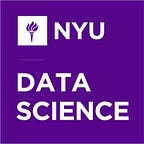Transforming Deep Learning Education with Yann LeCun and Alfredo Canziani’s Free Online Course
Yann LeCun is a renowned deep learning pioneer and one of the most important minds in AI, and over the past few years he has been developing a comprehensive theory of machine learning, centered around “energy-based models,” which he calls “the only way to formalize and understand all model types.” In a groundbreaking free online course, LeCun, who is CDS’ founding director and Chief AI Scientist at Meta, together with Alfredo Canziani, offers an introduction to this fresh take on deep learning. This course is a beacon for both students and professionals looking to delve into the core of deep learning without the clutter of unnecessary complexities.
The course has seen dramatic improvements since its launch in 2020. In an interview, Alfredo Canziani, a Visiting Assistant Professor of Computer Science at the Courant Institute of Mathematical Sciences at NYU, uncovers the innovative approach taken in this course. Canziani, who has been instrumental in updating the course content, explained that when he first taught the course with LeCun, he hadn’t fully internalized the revolutionary nature of the material himself. However, “by 2021, I finally started understanding the energy-first perspective,” Canziani explained. This drove a complete redesign of the course content and lectures to align with LeCun’s novel perspective on deep learning.
This course distinguishes itself by shedding the traditional probabilistic models and embracing the energy-based paradigm pioneered by LeCun. “It just simplifies the whole thing,” Canziani explains, referencing an Albert Einstein quote: ‘Make everything as simple as possible, but not simpler’. “That’s what Yann has done,” Canziani remarks. “He got rid of everything that wasn’t necessary.” The energy framework they teach acts as a radically simplified perspective on deep learning concepts.
The strength of this course lies not just in its content but also in its delivery. Canziani has devoted countless hours to creating engaging and intuitive visual effects, ensuring that complex ideas are not just taught but seen and understood. This is also the biggest change of the course since its 2020 iteration — the addition of visual effects and motion graphics. “The visualizations really help students understand what the math is actually referring to,” says Canziani, noting that “one hour of video with animations is 12 hours of me editing.” These interactive overlays help students visually follow complex topics like backpropagation, sparse coding, contrastive learning, and variational inference.
This focus on intuition and visualization is a core part of LeCun and Canziani’s approach. “A lot of math is just the symbolic formalization of mental pictures,” Canziani explains.
The course also employs incentives like a public leaderboard to motivate students. Canziani says the final competition is “really hard — I would struggle to do well on it myself without a lot of time and effort.” Top students present their work, providing great preparation for real-world applications.
The response from students has been overwhelmingly positive. Indeed, Canziani recalls numerous success stories from former students who attribute their career achievements to the course, including receiving emails from students who attribute their current careers to taking the Deep Learning course. “I got this job only because of you,” one student expressed in a heartfelt message to Canziani, a testament to the course’s impact.
Moreover, for the past two years, this course has been distilled into a textbook whose first draft is planned to be available for the upcoming spring semester. The latest update can be found on Canziani’s site.
With a constantly evolving curriculum, visually engaging lectures, and proven results, LeCun and Canziani’s Deep Learning course exemplifies how quality AI education can be made widely accessible. The free online course is not just a learning experience — it’s a journey through the essence of deep learning, reimagined for clarity and accessibility. And as emerging techniques continue to develop, so will this course at the cutting edge. To this end, Canziani maintains a page dedicated to Deep Learning video updates.
By Stephen Thomas
